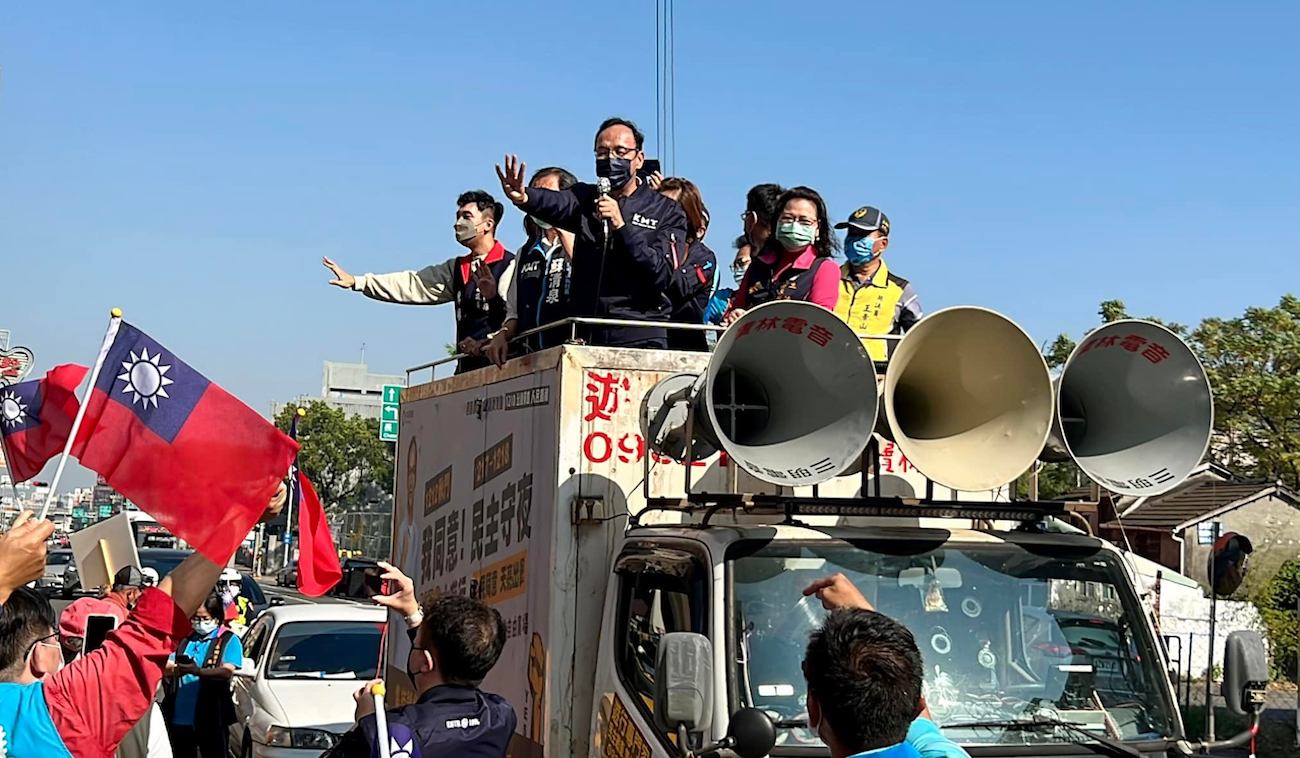by Brian Hioe
語言:
English
Photo Credit: Eric Chu/Facebook
THE NATIONAL REFERENDUM held last Saturday resulted in a defeat for the KMT, with the four referendum proposals that the KMT advocated all being voted down. As such, the Tsai administration has a much stronger position going into the 2022 midterm elections, with the DPP having called for all four proposals to be voted down. The four issues that were voted on were the relocation of a liquified natural gas terminal off the coast of Datan, Taoyuan, the restart of nuclear reactor #4, US pork imports, and whether referendums are held on the same date as elections.
Nevertheless, the night before elections were scheduled to take place, a major celebrity scandal broke out after Taiwanese American pop star Wang Leehom was accused of numerous infidelities and domestic abuse by his wife Lee Jinglei. This took place shortly after their divorce was announced.
 Wang Leehom. Photo credit: Kievew/WikiCommons/CC
Wang Leehom. Photo credit: Kievew/WikiCommons/CC
The scandal was subsequently seized upon by Taiwanese media, which focuses disproportionately on celebrity gossip, and whose coverage of female subjects, in particular, can be highly sexualized. News reports on Wang Leehom seemed to overshadow coverage of the referendum.
Before the referendum, there were some indications that voting would see low turnout. Seeing as referendums were not taking place on the same date as elections, one did not see the totalizing coverage of voting that one would otherwise see. Nor did the usual sense of existential national crisis that sometimes sets in before significant elections set in.
Ultimately, predictions bore out their course. Again, all four referendum proposals were voted down. Yet neither did any of the referendum questions meet the necessary benchmarks to be binding. Some claims by media pundits have suggested that both the DPP and KMT party apparatuses failed to mobilize voters, hence the low turnout.
More spuriously, one has seen claims by the pan-Blue camp–repeated on networks such as CtiTV that the Wang Leehom scandal affected voting. One claim, for example, was that young voters stayed up all night reading news about Wang Leehom, slept until noon, and decided it was too cold to go out and vote.
The hilarity of such claims aside, one is reminded of another incident in which a scandal regarding a Taiwanese celebrity supposedly influenced voting. This would be a 2016 incident in which Chou Tzu-yu, the Taiwanese member of South Korean girl group TWICE, made an apology video for waving the ROC flag in a video. This was apparently read as a sign of support for Taiwanese independence by nationalistic Chinese netizens, though waving the ROC flag would scarcely be perceived as such in Taiwan.
The incident was perceived as boosting voting for Tsai Ing-wen, because of the fact that this course of events highlighted bullying of Taiwan by China. If so, the actions of Chinese netizens may have had the opposite intended effect, in further pushing Taiwan away from China.
 Photo credit: Eric Chu/Facebook
Photo credit: Eric Chu/Facebook
More generally, it might be silly to attribute Tsai’s victory to this one incident, as some seemed to do at the time. At the same time, the Chou Tzu-yu incident refocused concern regarding the “China factor”—with stances on independence versus unification having long been the most salient political cleavage in Taiwan. It is probable that this could, indeed, have helped Tsai, though one hardly imagines this to have been the decisive factor in the 2016 elections.
Though the KMT and members of the pan-Blue camp might raise similar comparisons with Wang Leehom–as a way of claiming that the KMT defeat was out of their hands and was the result of such uncontrollable external factors–one notes that this is hardly the case. The Wang Leehom scandal did not touch on any of the issues being voted on in the national referendum, for example, such as regarding nuclear energy, the effect on algae reefs in Datan by the LNG terminal, US pork, or when referendums are held. Neither did the incident touch on issues regarding independence versus unification in any way, though issues regarding domestic abuse have, in fact, been more focused on in the news after an incident in which legislator Kao Chia-yu was beaten by her partner.
Politicians in Taiwan are in themselves celebrities and so, celebrity gossip in Taiwan often frequently includes news about politicians. It is also the case that news stories about celebrities can touch on cross-strait issues or otherwise affect electoral politics. However, the claims by the KMT notwithstanding, this does not seem to have been the case with the Wang Leehom scandal and the referendum. Yet the incident is likely still used by the KMT to deflect blame regarding its defeat.

